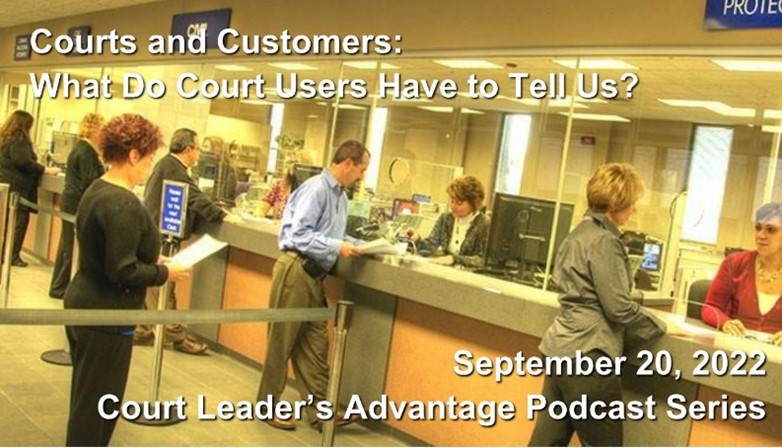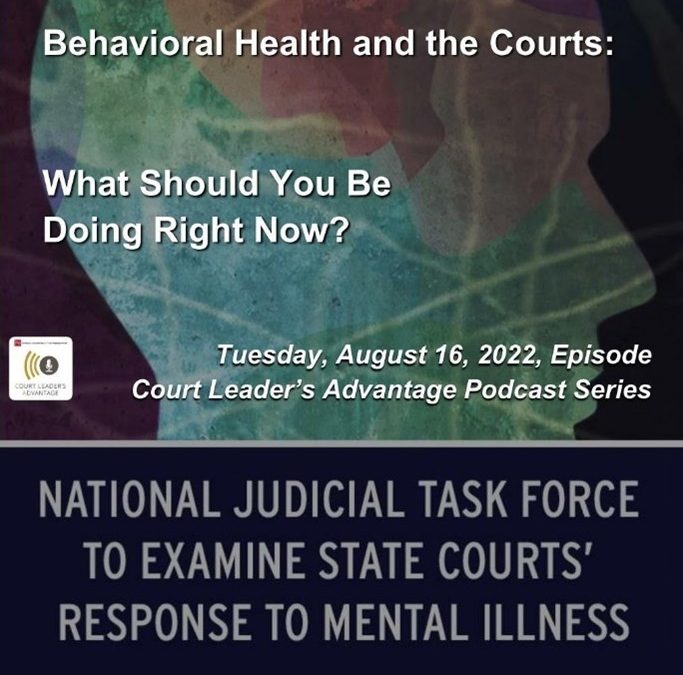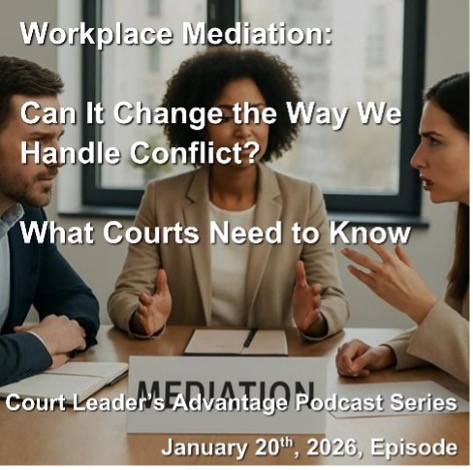Released on August 16, 2022.
In this episode, we ask the question, “What should our courts be doing now?” This month we bring our discussion on behavioral health and the courts home.
In previous episodes we talked about the extent of the problem nationally and how it affects each community; we discussed the need for community collaboration; we explored the challenge of criminal competency to stand trial, and we learned how mental health manifests itself as trauma in our young people. This month is the last of our five-episode discussion with members of the National Judicial Task Force to Examine State Courts’ Response to Mental Illness. Some of the topics we will explore include:
- What should judges and court administrators be doing right now to address this crisis?
- How do we educate the public about the realities of mental health?
- What kind of role will court staff play in this new model for courts?
- What advice do these panelists have for the rest of us?
Today’s Panel:
- The Honorable Christopher Goff, Justice on the Indiana Supreme Court
- Scott Block, Statewide Behavioral Health Administrator for the Illinois Administrative Office of the Courts
- Walter Thompson, Peer Recovery Support Specialist and retired non-commissioned officer in the United States Army, and
- Patti Tobias, Principal Court Management Consultant for the National Center for State Courts
Click here to listen to the podcast. The audio version is 32 minutes, 10 seconds long and the video version is 33 minutes 7 seconds long.
Leave a question or comment about the episode at clapodcast@nacmnet.org.
Show Notes
> About the Presenters
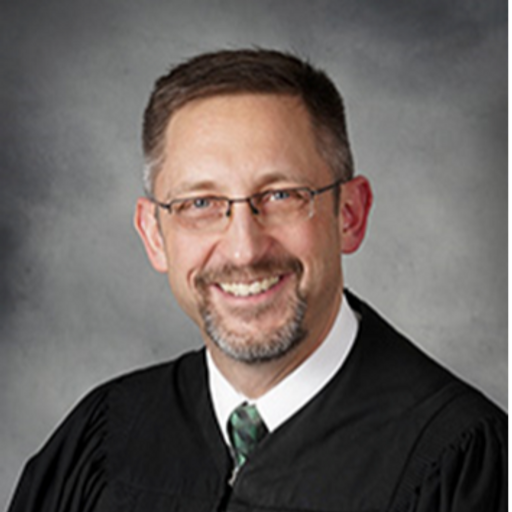 Honorable Christopher M. Goff
Honorable Christopher M. GoffThe Honorable Christopher M. Goff was appointed as Indiana’s 110th justice in 2017 by Governor Eric J. Holcomb. Prior to his appointment, Justice Goff was judge of the Wabash Superior Court for twelve years during which time he established the Wabash County Drug Court, Wabash County Family Recovery Court, and the Wabash County Reentry Court. He has served as President of the Huntington County Police Merit Board and was named Huntington County’s Pro Bono Attorney of the Year in 2001 and 2002. He is currently the Chair of the Indiana Justice Reinvestment Advisory Council (JRAC) as well as serving as a member of the National Judicial Task Force to Examine State Courts’ Response to Mental Illness.
Institutions around the state have recognized Justice Goff’s efforts. In 2018, the Bowen Center presented him with its Centennial Award for working to establish a culture of mental health in Northeast Indiana. Ball State University recognized him as one of its Graduates of Distinction. In 2020, Indiana University presented him with its Bicentennial Medal in recognition of his distinguished service. Also in 2020, he received an award from the Indiana Sheriff’s Association for his leadership and dedication during the COVID-19 emergency.
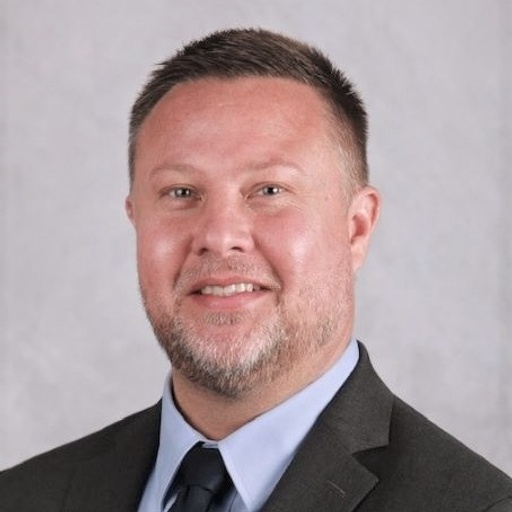 Scott Block
Scott Block Scott Block holds a master’s degree in counseling, is a Licensed Clinical Professional Counselor, a Certified Alcohol and Other Drug Counselor, a Certified Criminal Justice Addictions Professional, and a National Center for State Court’s Certified Court Manager.
As the AOIC’s Statewide Behavioral Health Administrator, Scott serves as the Illinois Judicial Branch’s dedicated voice and resource, committed to furthering local, state, and national behavioral health and justice initiatives as they affect the courts. In this capacity, he acts as the project director for the Illinois Mental Health Task Force, provides behavioral health related administrative support to the Illinois Supreme Court, and acts as liaison to state and national behavioral health and justice affiliates and organizations.
He is also an adjunct professor at Aurora University in the School of Social Work, with a focus on substance use disorder and addictions.
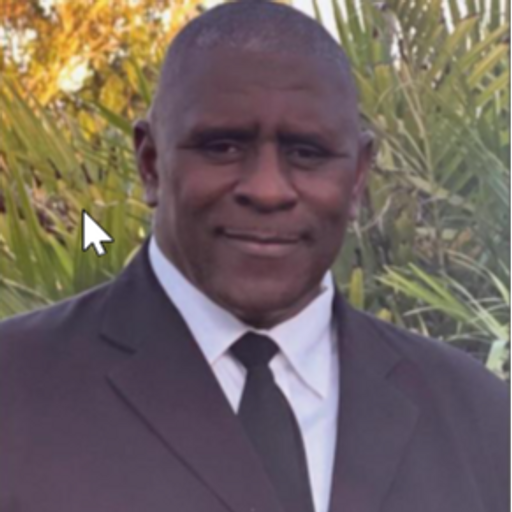 Walter Thompson
Walter Thompson Walter Thompson Sr. is a Peer Recovery Support Specialist and retired Non-Commissioned Officer in the U.S. Army after serving more than 20 years. He is an Ordained Deacon at his local church, an advocate for mental health and was recently elected Commissioner and Vice Mayor of Florida City, FL. He attended Central Texas College and Miami Dade College. He is a certified Peer Specialist and Group Instructor. He is also an Intention Peer Specialist (IPS), Wellness Recovery Action Plan Facilitator (WRAP), Interactive Journaling (IJ) Facilitator, and Small Group Instructor (SGI). He is committed to Mentoring underprivileged youth and being a leader in his community.
 Patti Tobias
Patti Tobias Patricia Tobias has been with the NCSC’s Court Consulting Services division as a Principal Court Management Consultant since August 2014. Ms. Tobias has experience working in a wide variety of national, statewide, and local projects including those involving leadership and governance, caseflow management, strategic planning, child welfare, criminal justice reform and improving the justice system response to mental illness. She works with national court organizations and often presents at state and national conferences. As part of a NCSC team, she currently supports the work of the National Judicial Task Force to Examine the State Courts’ Response to Mental Illness.
Prior to becoming a Principal Court Management Consultant, Ms. Tobias served as the Administrative Director of the Idaho Courts for 20+ years, since November 1993. She previously served as the Clerk of the Court, St. Louis County, Missouri (1986-1993); Director of Court Services Division, Office of the State Courts Administrator, Missouri Supreme Court (1980-1986); and Adult and Juvenile Probation Services, Champaign County Circuit Court, Illinois (1976-1979). Ms. Tobias served as President of the Conference of State Court Administrators and as Vice-Chair of the NCSC’s Board of Directors (2002-2003) and on the Council of State Governments’ Justice Center Board of Directors (2009-2011). She received the NCSC’s Warren E. Burger Award for Administrative Excellence, 2012; the Robert L. Doss, Jr., Memorial Scholarship, 2011; the Justice Management Institute’s Ernest C. Friesen Award of Excellence, 2008; the Idaho State Bar’s Award of Distinction, 2003; the Public Policy Leadership Award, 2003; and the Kramer Award for Excellence in Judicial Administration, 2001. Ms. Tobias received her M.S.J.A. from the University of Denver College of Law and her B.S. from the University of Illinois.


